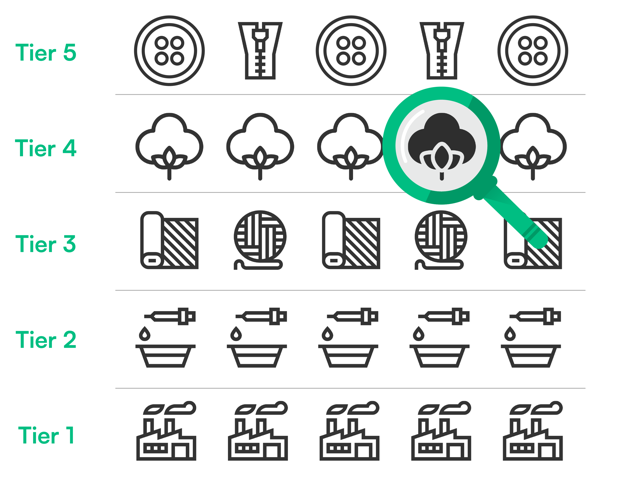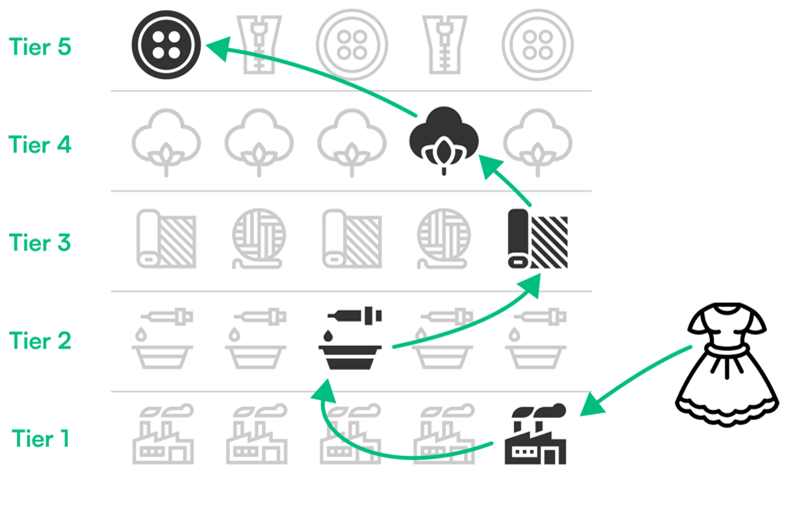In today’s rapidly evolving global marketplace, transparency and traceability have emerged as pivotal factors in supply chain operations. The significance of these two principles lies in their ability to address critical issues such as ethical sourcing, sustainability, and consumer trust. By embracing transparency and traceability, businesses can not only enhance their operational efficiency but also provide an opportunity for stakeholders to gain clarity and insights into the supply chain.
What is Transparency?
Transparency refers to the openness and accessibility of information regarding the various tiers and processes involved in the supply chain. It means disclosing the entire supply chain, including vendors and all their active production partners. Transparency can help build trust and accountability by revealing the practices, policies, and performance of companies involved in the supply chain.

Key Elements of Transparency:
Disclosure of the whole supply chain: Vendors share detailed information about all active production partners.
Open Communication: Regular updates and open lines of communication between production partners in various tiers.
What is Traceability?
Traceability refers to the ability to follow the journey of a product back through each tier of the supply chain, all the way up to the raw material itself. It can facilitate the identification of sources, processes, and distribution channels at every manufacturing stage. Traceability enables pinpointing the origins of materials and components, ensuring they meet specific standards and regulations.

Key Elements of Traceability:
Disclosure of the product-related supply chain: Vendors identify and share all production partners involved in the manufacturing processes of a specific product
Tracking Systems: Brands and end-customers can use technologies, such as barcodes and RFID, tags to retrace the journey of a product
Transparency and Traceability: Our Approach
Otto International leverages transparency and traceability as key forces to elevate the social and environmental performance of our supply chain. We endeavour to support our customers in realising their vision for a supply chain that exemplifies openness and accountability. This commitment not only aligns with our mission of being the most responsible partner for bespoke, smart, and simple value chain solutions, but also empowers us to drive positive change within our industry and beyond.
Our current approach is to collect as much relevant data as possible on our all active production partners: this means regularly asking our vendors to provide, review, and update the information in our system on the production partners they are working with. We ask for this data for every tier of our products’ manufacturing process and conduct routine reviews and assessments to ensure the quality of the data provided.

We’ve also been actively advancing our supply chain traceability efforts. Our existing transparency data serves as a robust foundation for our traceability endeavours, enabling us to build upon a solid framework of openness and accountability. In collaboration with our supply chain solutions partner TradeBeyond, we are developing a dedicated system to strengthen our traceability capabilities to effectively trace our products’ journey through the supply chain.
Our commitment to traceability data collection aligns with prevailing legislation, such as France’s “anti-waste law for a circular economy” (AGEC) and prepares us for forthcoming EU legislation. Moreover, it exemplifies our dedication to fostering a sustainable supply chain. Looking ahead, we remain committed to expanding the availability of traceability data to all business partners and enhancing our traceability capabilities in the years to come.
Follow us on LinkedIn and check out our news channel to learn more about our sustainability innovations and business updates.

